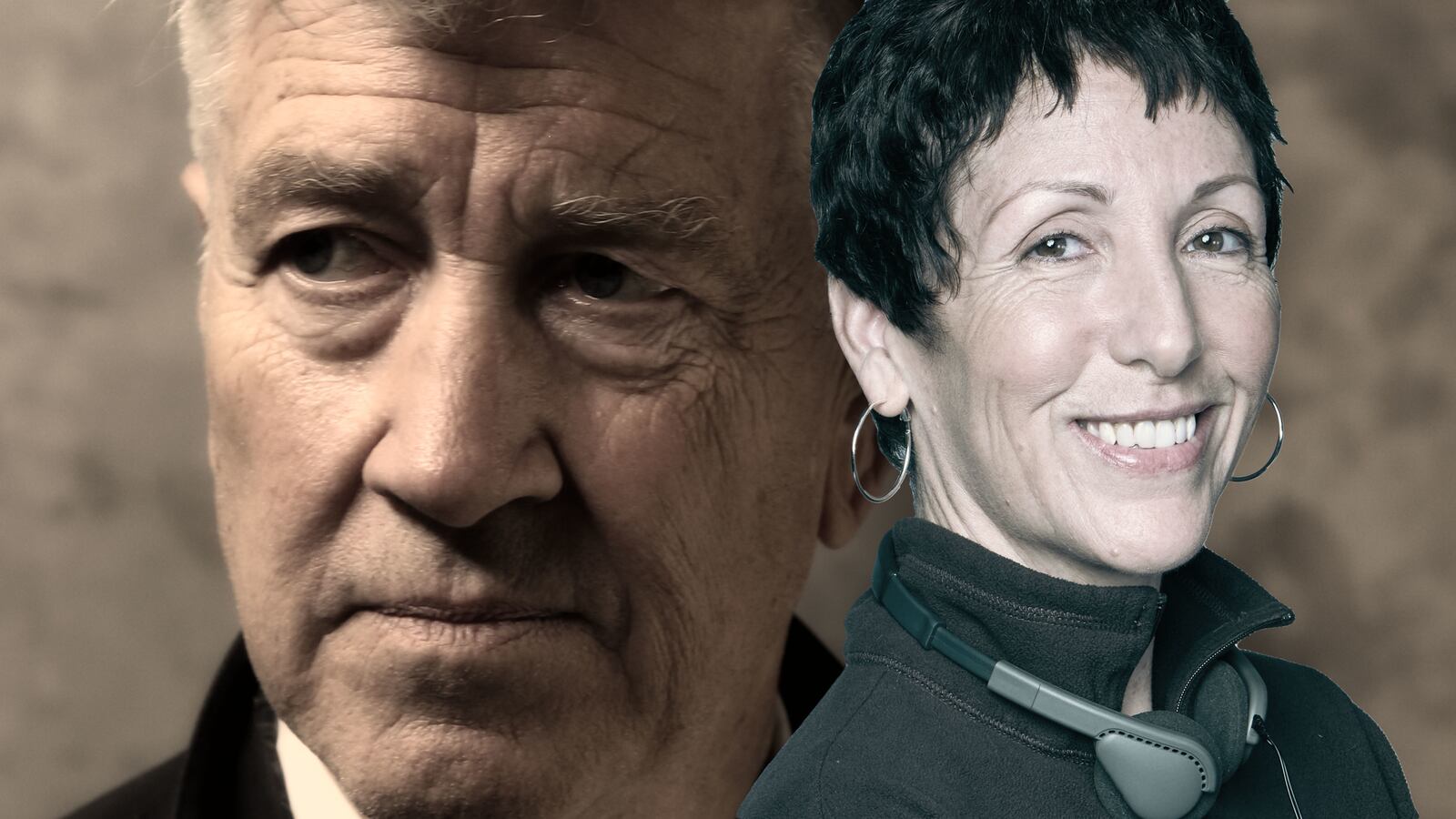It’s a gorgeous day in Los Angeles, and David Lynch is trying to get his personal swing-out urinal installed. “I got the tilt just right and it seems to be working good,” he says with quiet pride. “In England, they call it the ‘Ur-I-nal.’”
The construction of this unique contraption is just one of the many delightful things that Lynch—icon of the international arthouse, co-creator of the most innovative film (or was it a television show?) of the last decade, and devoted former Eagle Scout—has shared on his YouTube channel, David Lynch Theater, since its launch this past spring. On May 11, Lynch quietly and without warning released his first new Weather Report in more than 10 years. Since then, the channel has exploded with new content, including a regular diary of Lynch’s day-to-day activities called “What is David Working on Today?”; the online premieres of several rarely seen short films, such as an ode to his longtime collaborator Alan R. Splet; and the serialized release of his anthropomorphic bunny series, Rabbits.
The centerpiece of David Lynch Theater, however, is the Weather Report, which Lynch records each morning and sends to his long-time producer, Sabrina S. Sutherland, who manages the channel. Viewers around the world (of which he has hundreds of thousands) have now become accustomed to the director, dressed in his signature black button-up with a damn fine cup of coffee on his desk, predicting “Blue skies and golden sunshine!” with palpable joie de vivre.
“We started talking about a YouTube channel right after Twin Peaks,” Sutherland recalls, referring to the massively acclaimed third season she, Lynch, and co-creator Mark Frost made for Showtime in 2018. But according to the collaborators, it was not until the “beautiful” isolation of the COVID-19 pandemic “gave [us] an opportunity” that they began to really invest in growing Lynch’s digital presence.
Before quarantine, the filmmaker “would not want to schedule meetings before 11 in the morning—maybe even noon. Now, like this morning, I got up at 3:30, way before the birds,” Lynch tells me. That change has allowed them both to develop David Lynch Theater as a home for a rushing stream of new work, as well as gems from Lynch’s personal archive. “YouTube—it connects you with the world in a way,” he explains. “You get inspiration and ideas, and away you go.”
The channel’s increasing virality has also afforded Lynch a wider platform to elevate causes close to his heart. “Black Lives Matter inspired me,” he says, to make pronounced statements of solidarity when the killing of George Floyd ignited protests across the country against police brutality and institutional racism. On June 2, to honor Blackout Tuesday, Lynch skipped the Weather Report altogether (a video from that day, since deleted, featured a pointedly empty chair); the following morning, he stationed a giant BLM banner behind him, an act so expressly political for Lynch that it inspired both international news and grade-A memes.
Both Lynch and Sutherland say that America’s ongoing racial reckoning, including clarion calls for increased diversity in front of and behind the camera, has caused them to consider ways to better center BIPOC voices in their work, a subject that Lynch’s features have long interrogated.
“It makes me think about what I’ve been doing and how I can improve in that respect,” reflects Sutherland. She says that, while many David Lynch productions are staffed with long-time Lynch collaborators like Duwayne Dunham, Peter Deming, and Alfredo Ponce, she plans to “give opportunities that haven’t been there in the past” when new projects can begin safely crewing up.
Lynch, for his part, says that while “it would be wrong to put someone in a role for any other reason than they are perfect for the part,” he also “understands the frustration if people aren’t welcome to the table.” The rule that guides him now after more than five decades of filmmaking is simply to find fellow human beings willing to “follow the ideas” as they come up during production. If that’s the case, “I’m open for anything and I would work with anyone if they were right for the part. Zero problem,” he says.
One possible solution for our national strife Lynch posits is Transcendental Meditation, the technique he has practiced and promoted as the founder of the David Lynch Foundation for several decades. “Peace—real peace—is not just the absence of war, but the absence of negativity. In real peace, all diversity is appreciated fully. It’s called the ‘Unified Field’ by physicists. It brings everything together. You still have all the differences, but they’re appreciated by everyone,” he says.
Lynch even says he believes that if people like Donald Trump would “get on the program,” the country could finally start “getting happy, start losing all this stress and negativity that causes so much fucking problems in this world.” While the filmmaker recognizes that certain “people have lost contact” with “expanding unity, expanding bliss, and expanding intelligence,” he remains adamant that all of it belongs “to every single person: atheists, agnostics, whatever!”
For Sutherland, the David Lynch Theater is intended to be a much-needed conduit for this unerring and “optimistic feeling of happiness” in dark and dispiriting times. “David is the embodiment of meditation, in a way,” she explains. “I think that’s translated in his work, and it’s translated in himself. I watch him and I’m fascinated.”
While she accepts that some people might prefer content that’s quick and biting, his videos are meant for anyone interested to “sit and just watch [Lynch] paint,” something he does regularly with the help of his “Incredible Checking Stick.” It’s soothing, says Sutherland: “In this world today, we need to slow down, take our time. And David appreciates time.”
Eventually, Sutherland and Lynch acknowledge, time will run out for this particular project as well, with the director offering cryptically that “there might be things coming along that would mean less time could be spent on the channel.” But with so many people around the world now relying on Lynch to salute them each morning, one wonders when might be the right time to finally hit pause on the daily Weather Reports.
Lynch’s austere features break into a bright laugh at the prospect: “When you die!”


